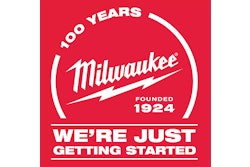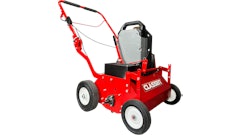
The landscaping industry has seen a growing shift toward sustainability and efficiency in recent years, encouraging many companies to embrace propane-powered commercial mowers. Propane can offer game-changing benefits for grounds maintenance crews and, ultimately, a company’s bottom line.
Enhanced productivity
Propane-powered mowers provide consistent power and performance, resulting in enhanced productivity and faster job completion times. This is a promising perk for any size job but particularly noteworthy for crews managing large, extensive properties.
Propane mowers can run longer on a single tank of fuel compared to their gasoline counterparts and run more continuously than electric-powered landscape equipment. When it comes to refueling, crews can simply swap out the propane cylinders and get back to work, avoiding valuable downtime for refueling or recharging.
Additionally, propane is a cleaner fuel, which reduces the frequency of maintenance requirements, such as oil changes and air filter replacements. This reliability helps ensure commercial mowers are ready to operate when called upon, minimizing disruptions and maximizing operational efficiency.
Cleaner, greener fleets
Sustainability continues to be a hot topic and strategic priority for companies across the country, especially in the landscaping industry. Despite the push toward electrification, the adoption of propane-powered mowers aligns with the increasing demand for green practices in landscaping.
The reality is, there is no singular path to decarbonization or one energy source that meets the needs of every business owner in the green industry. It will take a mix of clean energy sources working together to ensure energy equity.
Propane reduces greenhouse gas emissions by 17%, nitrogen oxide (NOx) by 19% and sulfur oxide (SOx) emissions by 16%. Operating with propane also means that crews can avoid the risk of spilling gasoline.
Moreover, propane-fueled mowers may be permitted to operate when and where local regulations ban the operation of gasoline-fueled mowers to protect air quality. Propane emits significantly fewer ground-level ozone precursors and particulate matter—the pollutants considered most harmful to human health.
As companies look to be eco-friendly operators, they should also consider renewable propane as an impending solution. Renewable propane is an environmentally friendly, low-carbon energy source produced from renewable feedstocks. Because renewable propane’s molecular structure and physical properties are the same as traditional propane, renewable propane is a “drop-in” fuel for any existing propane engine. With half the carbon intensity of standard propane, the path to zero and near-zero emissions is attainable within the next 15 years.
Long-term cost savings
For any business, cost considerations play a key role in the decision-making process. Whether looking to bring in new business, save on operational costs or simply evade high gas prices propane has you covered.
Propane prices tend to be lower and more stable. Additionally, propane can be stored indefinitely, whereas gasoline degrades over time. This stability allows companies more accurate budgeting and helps avoid the financial uncertainties associated with fluctuating fuel prices.
Crews can also expect fewer repairs, longer equipment lifespans and more mileage before replacements when operating propane-fueled mowers because of its cleaner combustion and reduced engine wear-and-tear. Notably, propane's cooler burn can reduce engine stress and eliminate buildup from gas.
By reducing fuel and maintenance costs, companies can pass those savings on to customers for a competitive edge—it’s a win-win. Plus, many regions offer incentives and rebates for businesses that adopt propane-powered equipment as part of broader sustainability initiatives. These financial incentives can offset initial investment costs, making the transition to propane mowers even more appealing.
As we look to the future of grounds maintenance, we’re confident that propane will continue to increase market share because of its clean, reliable, cost-effective reputation for landscapers, commercial mowing businesses and so much more.





















